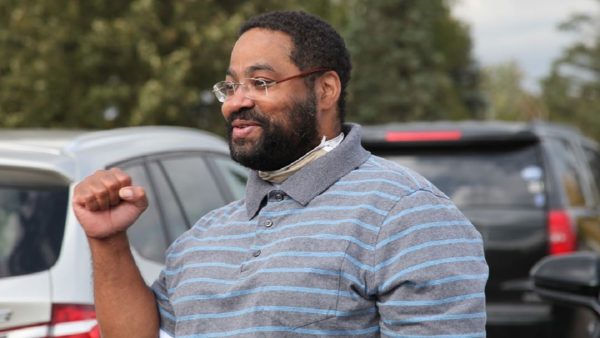A DNA test ended more than two decades of captivity for Michigan man Lacino Hamilton, who walked out of prison on Wednesday, Sept. 30.
In 1996, Hamilton was convicted of second-degree murder and felony firearms charges for the death of Willa Bias, his foster mother, according to The Detroit News. He was sentenced to 50 to 80 years in prison. In June 1994, Bias was found shot to death in her home. No one witnessed the killing and the use of DNA testing was not widespread back then. DNA evidence was recovered from the underside of Bias’ fingernails and it remained with the police department.

Hamilton was implicated by a “jailhouse snitch” whose testimony was eventually discredited. The informant reportedly made accusations against several others to secure leniency for his own crimes.
“There are thousands of Mr. and Ms. Hamiltons sitting in prison, but they don’t have the resources (to help them),” Mary Chartier, Hamilton’s attorney, told The Detroit News. “Many of the thousands of men and women who are wrongfully imprisoned have been convicted based on ‘snitch’ testimony.”
Wayne County prosecutor Kym Worthy lambasted “the woefully improper use of informants in this case by the Detroit Police Department.”
“The use of informants can be a very valuable tool in fighting crime and seeking justice, but in this case it was used and abused horribly,” Worthy added.
The DNA taken from the scene was recently tested and proved Hamilton had nothing to do with Bias’ death. His sentence was vacated by Wayne County Circuit Court Judge Tracey Green, and Hamilton left Macomb Correctional Facility on Wednesday.
“I’m a little overwhelmed right now,” the 45-year-old said during a virtual court appearance. “I am extremely grateful and look forward to being a productive citizen in our community.”
The Wayne County Prosecutor’s Office’s Conviction Integrity Unit worked with Hamilton’s legal team and the Western Michigan University-Cooley Law School Innocence Clinic to secure his exoneration.
This case is the first time the county unit used DNA to clear a person’s name.
“I think it’s great,” Valerie Newman, director of the county unit, told The Detroit News. “It’s nice to have the science [and] something concrete and definitive.”


